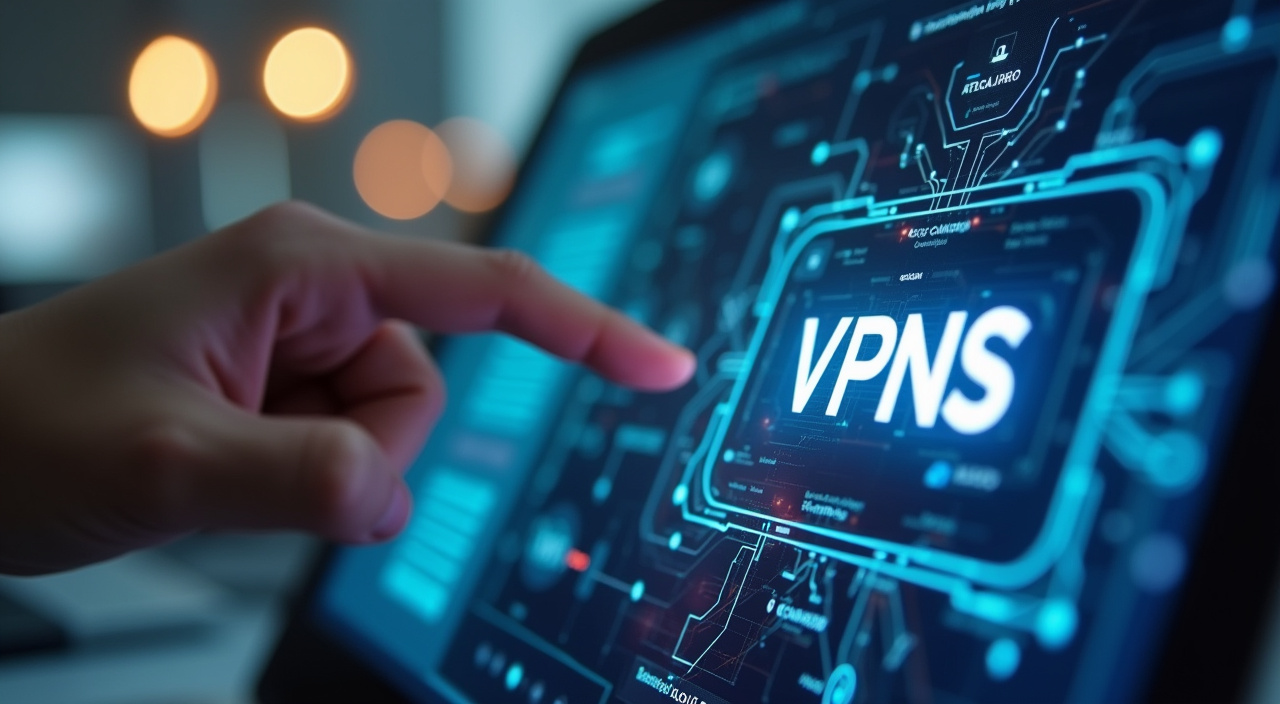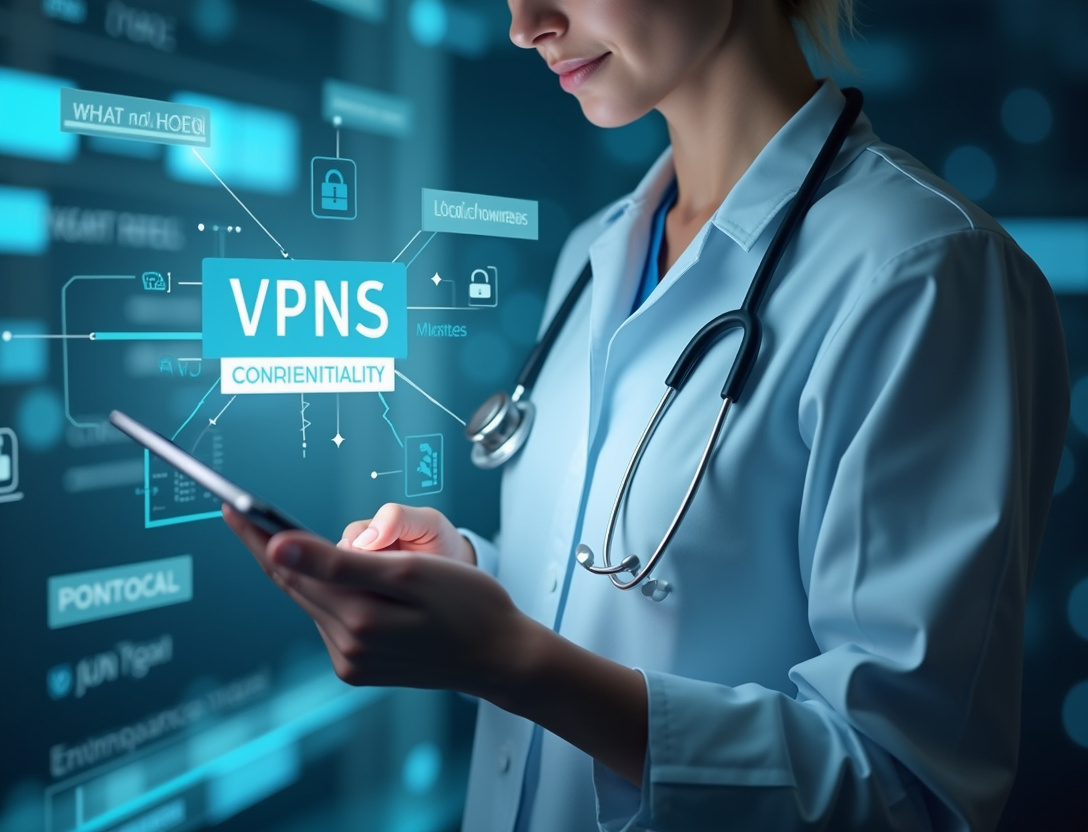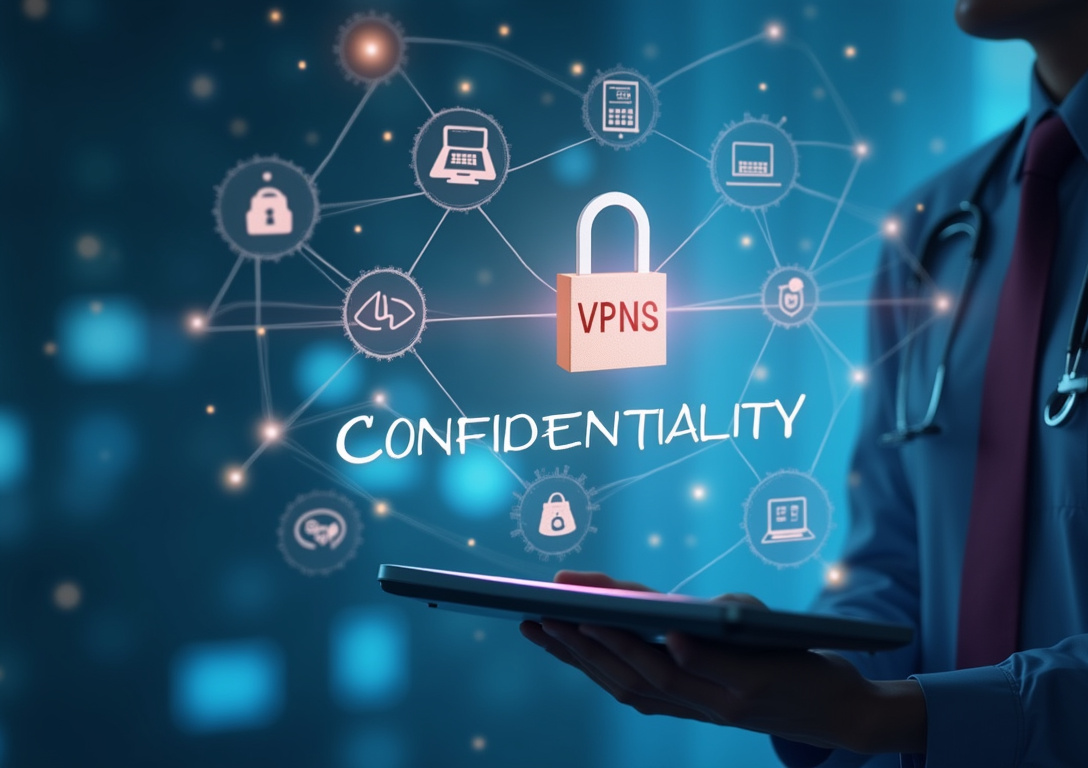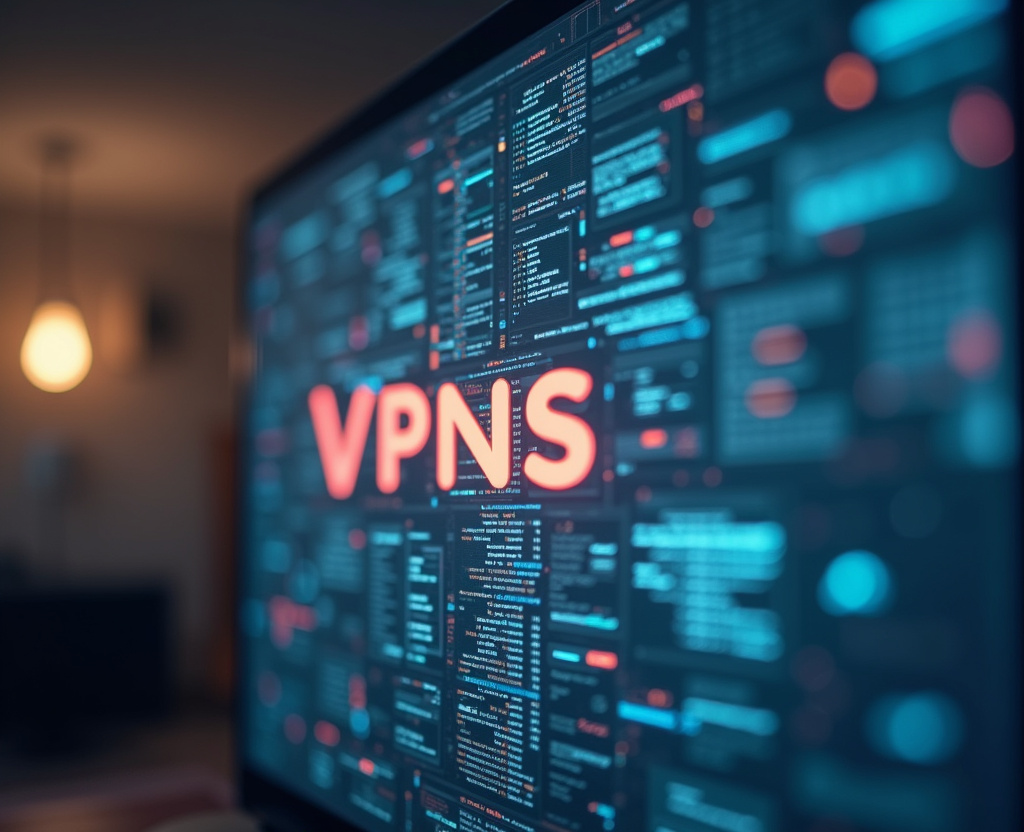VPNs for Biomedical Devices: Ensuring Patient Data Security
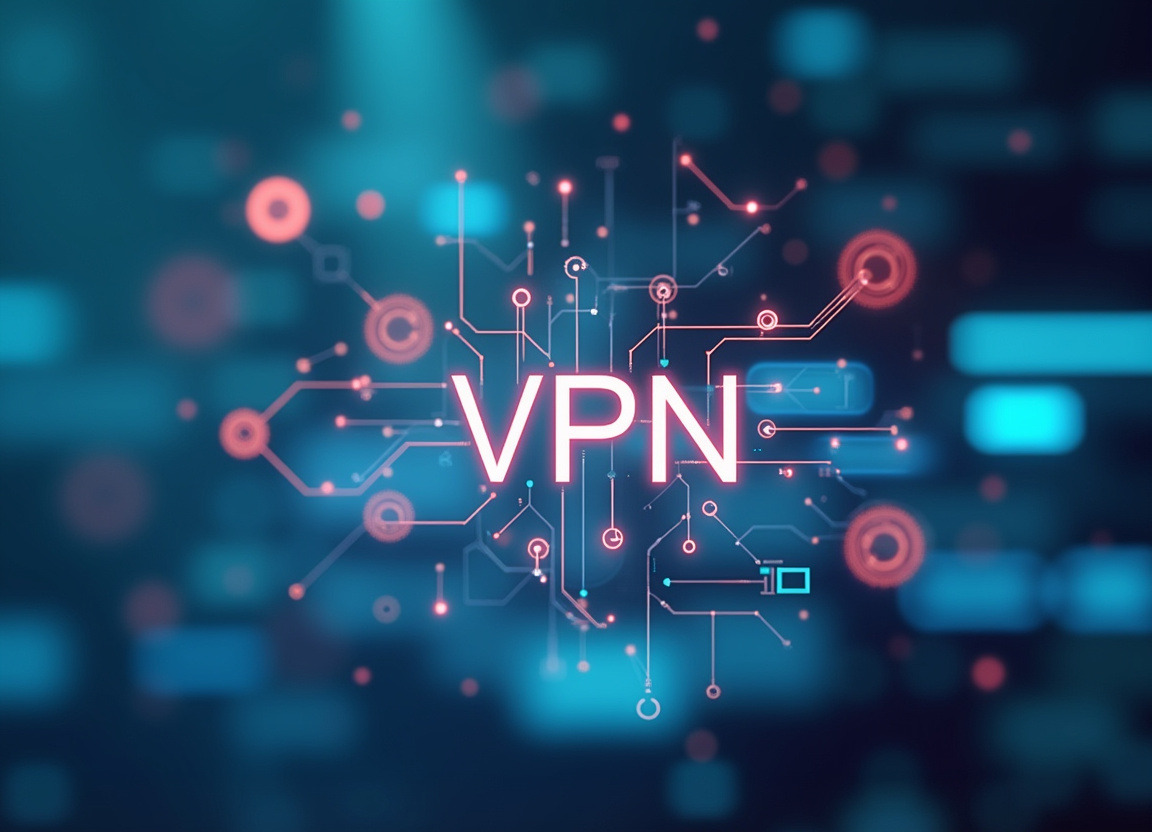
Table of Contents
The Imperative of Data Security in Biomedical Devices
The digital evolution in healthcare has inextricably linked patient well-being to the cybersecurity of biomedical devices. These devices, ranging from sophisticated imaging systems to implantable cardiac devices, are integral to modern medical practice, generating and transmitting sensitive patient data across interconnected networks. The vulnerability of these devices to cyber threats poses a significant risk to patient data security, potentially compromising confidentiality, integrity, and availability of critical health information.
In this comprehensive exploration, we delve into integrating Virtual Private Networks (VPNs) for biomedical devices as a crucial strategy for fortifying patient data security and upholding device integrity. We will navigate the landscape of VPNs, exploring their functionalities, implementation considerations, and their role in adhering to stringent healthcare regulations. A biomedical device VPN establishes a secure, encrypted tunnel for data transmission, creating a protective barrier against unauthorized access and interception.
This functionality is particularly vital for devices operating wirelessly or across public networks, where the risk of eavesdropping and data breaches is amplified. This encrypted environment cloaks sensitive patient information as it travels between the device and healthcare provider, rendering it unintelligible to malicious actors. The implementation of a robust VPN solution, however, extends beyond mere encryption; it requires a holistic approach encompassing stringent security policies, including multi-factor authentication protocols which add an additional layer of security beyond basic passwords, hindering unauthorized access even if credentials are compromised.
Also, there are some security audits that are essential to the VPN environment and can bring you insights on risks. Security audits are vital to evaluate the effectiveness of the VPN configuration and policies by identifying vulnerabilities and weaknesses. Proactive threat monitoring is also very important and ensures continuous analysis of network traffic and system logs to identify and respond to suspicious activities, like ransomware attacks.
Beyond data protection, VPNs are instrumental in maintaining device integrity by preventing unauthorized modifications or control. By restricting access to authorized personnel and systems, VPNs act as gatekeepers, safeguarding biomedical devices from malware infections, unauthorized remote access, and other cyber threats that could potentially compromise their functionality and accuracy. This assurance of device integrity is crucial because clinicians rely on the accuracy and reliability of these devices to make informed decisions and administer proper patient care.
Implementing a multi-layered security approach is the best way in the process of protection and this can be done by using a VPN alongside other security measures such as firewalls, intrusion detection systems, and endpoint protection, that is all needed to to create a robust defense against a wide spectrum of cyber threats. Selecting the appropriate VPN solution for biomedical devices demands careful consideration of several factors. The specific security needs of the devices themselves alongside the network infrastructure, and stringent regulatory compliance requirements must be kept in mind.
Healthcare organizations need to meticulously evaluate VPN solutions. The aspects of measurement are encryption strength, authentication mechanisms, logging capabilities, and compliance with relevant regulations like HIPAA (Health Insurance Portability and Accountability Act), all need a proper consideration. Furthermore, the VPN solution should be user-friendly in terms of management, effortlessly scalable to accommodate future growth, and seamlessly compatible with existing healthcare systems.
To ensure continuous effectiveness and proactively address emerging threats, ongoing monitoring and maintenance are paramount. Routine software updates are indispensable for patching vulnerabilities and keeping the VPN solution up-to-date with the latest security protocols. Regular security audits and thorough penetration testing are also mandatory.
All this can help identify and remediate potential weaknesses in the system, ensuring its ongoing resilience against evolving cyber threats. In conclusion, integrating specialized biomedical device VPNs constitutes a cornerstone of a comprehensive health information protection strategy. By providing a secure channel for data transmission and preventing unauthorized access, VPNs significantly fortify patient data security and underpin the integrity of these interconnected medical instruments.
Understanding VPN Technology and Its Role in Healthcare
Beyond the technological aspects of VPN implementation, adherence to privacy regulations and ethical data handling practices is paramount in the realm of biomedical devices. The sensitivity of patient data necessitates strict compliance with established legal frameworks and ethical guidelines. In the United States, the Health Insurance Portability and Accountability Act (HIPAA) serves as a cornerstone of patient data protection.
HIPAA mandates that healthcare providers and their business associates implement appropriate physical, technical, and administrative safeguards to protect the confidentiality, integrity, and availability of Protected Health Information (PHI). This encompasses any individually identifiable health information that is transmitted or maintained in any form or medium. Similar comprehensive regulations exist internationally, such as the General Data Protection Regulation (GDPR) in the European Union, which imposes stringent requirements on the processing of personal data, including health information.
Biomedical device VPN solutions directly contribute to achieving HIPAA and GDPR compliance by providing the necessary encryption and access controls to safeguard PHI during transmission and storage. HIPAA's Security Rule requires covered entities to implement technical safeguards to protect electronic PHI, including encryption and decryption. A properly configured VPN fulfills this requirement by encrypting data in transit, preventing unauthorized access even if intercepted.
Furthermore, VPNs enable healthcare organizations to demonstrate compliance with HIPAA security rules by providing detailed audit trails of network activity. These audit trails can be used to track who accessed what data, when, and from where, aiding in the investigation of potential security incidents and demonstrating accountability. By implementing a VPN, healthcare providers take a tangible step toward ensuring that patient data is shielded from unauthorized access, modification, or disclosure, both internally and when transmitting data to third-party vendors, cloud storage providers, or other healthcare networks.
However, the ethical imperative to protect patient data extends beyond mere regulatory compliance. Patients place immense trust in their healthcare providers, entrusting them with highly personal and sensitive information. This trust is predicated on the understanding that their data will be treated with utmost care and protected from misuse.
A data breach involving patient information can have devastating consequences, including identity theft, financial losses, emotional distress, and reputational damage. Moreover, compromised patient data can erode trust in the entire healthcare system, potentially deterring individuals from seeking necessary medical care. The proactive implementation of robust security measures like VPNs demonstrates a commitment to ethical data handling practices and strengthens the crucial bond of trust between patients and healthcare providers.
This commitment fosters a culture of privacy within the organization, emphasizing the importance of safeguarding patient information at all levels. VPNs also bolster device integrity by preventing unauthorized modifications and safeguarding against tampering. By limiting access to authorized personnel only, VPNs make it exceedingly difficult for malicious actors to remotely access and manipulate biomedical devices.
This protection is crucial, given that many of these devices are connected to the internet or hospital networks, making them potential targets for cyberattacks. A VPN encrypts all traffic to and from a biomedical device, rendering it nearly impossible for attackers to intercept or alter the data being transmitted. In tandem with strong access controls, the organization can better ensure that the device is functioning as intended and that the data it generates is accurate, reliable, and secure.
In addition, VPNs facilitate secure remote access for essential device maintenance, upgrades, and troubleshooting. Authorized technicians can securely connect to biomedical devices remotely, regardless of their location, enabling prompt resolution of technical issues, minimizing downtime, and optimizing device performance which all lead to improved patient care.
Implementing VPNs for Remote Monitoring and Patient Care
Selecting the appropriate VPN protocol constitutes a crucial step in securing biomedical devices, as different protocols offer varying degrees of security, speed, and compatibility. The choice of protocol should carefully align with the specific requirements and constraints of the devices and network infrastructure. Among the most commonly deployed VPN protocols are IPSec (Internet Protocol Security), SSL/TLS (Secure Sockets Layer/Transport Layer Security), and OpenVPN, each with its own strengths and weaknesses.
IPSec stands out as a widely adopted VPN protocol recognized for its robust encryption and authentication capabilities. Operating at the network layer, IPSec can effectively safeguard all traffic traversing between two devices or entire networks. This makes it particularly well-suited for creating site-to-site VPNs, which securely connect geographically separated networks.
However, IPSec can also be configured for remote access VPNs, enabling individual users to securely connect to a network from remote locations. IPSec employs a suite of security protocols, including Authentication Header (AH) and Encapsulating Security Payload (ESP), to provide data integrity, authentication, and confidentiality. AH ensures that data packets have not been tampered with during transmission, while ESP encrypts the data payload to prevent unauthorized access.
Despite its robust security, IPSec can be complex to configure and manage, often requiring specialized expertise. Furthermore, compatibility issues can arise due to the various implementations and configurations of IPSec across different devices and operating systems. SSL/TLS, on the other hand, is another popular VPN protocol that establishes a secure connection between a client and a server.
It operates at the transport layer, enabling the protection of specific applications or services, such as web browsing, email, and file transfer. SSL/TLS leverages cryptographic algorithms to encrypt data in transit, ensuring confidentiality and preventing eavesdropping. In addition, SSL/TLS authenticates the server to the client, verifying its identity and preventing man-in-the-middle attacks.
SSL/TLS is relatively easy to implement and is widely supported by web browsers and other applications. However, it typically only protects traffic for applications that explicitly support SSL/TLS, leaving other network traffic unprotected. Furthermore, SSL/TLS can be vulnerable to certain types of attacks if not properly configured and maintained.
OpenVPN emerges as an open-source VPN protocol that offers a high degree of flexibility and customization. It can be configured to utilize a wide range of encryption algorithms and authentication methods, allowing organizations to tailor the security settings to their specific requirements. OpenVPN is well-regarded for its ability to bypass firewalls and network address translation (NAT) devices, making it suitable for use in restrictive network environments.
In terms of deployment scenarios, OpenVPN is versatile, lending itself well to both site-to-site and remote access VPNs. Its open-source nature fosters community-driven development and scrutiny, enhancing its security posture. However, OpenVPN can be more complex to configure and manage than other VPN protocols.
The protocol's flexibility, while advantageous, necessitates a deeper understanding of networking and security concepts. The selection of a suitable VPN protocol hinges on the specific security requirements, performance considerations, and compatibility constraints of the biomedical devices and the encompassing network infrastructure. Factors such as the level of encryption required, the desired speed and latency, the compatibility with existing hardware and software, and the ease of management should all be carefully weighed.
In certain scenarios, a combination of VPN protocols may be employed to provide enhanced security and flexibility. For instance, IPSec might be used for site-to-site VPNs, while SSL/TLS is utilized for remote access to web-based applications. Regardless of the chosen protocol, it is crucial to implement strong encryption algorithms, robust authentication methods, and regularly update the VPN software to patch vulnerabilities and maintain optimal security performance.
Securing Biomedical Device Communication with VPNs
The successful implementation of a biomedical device VPN necessitates a carefully planned and meticulously executed configuration process. This involves several key steps, including network assessment, VPN server setup, client configuration, and rigorous testing. A comprehensive network assessment forms the foundation of any secure VPN implementation.
This assessment involves identifying all biomedical devices that require VPN protection, mapping their network connectivity, and analyzing the existing security infrastructure. It is essential to understand the types of data transmitted by these devices, the potential risks associated with unauthorized access, and the regulatory requirements that apply. The assessment should also identify any potential bottlenecks or compatibility issues that could impede the VPN's performance.
Based on the network assessment, a suitable VPN server can be selected and configured. The VPN server acts as the central point of connection for all VPN clients and is responsible for encrypting and decrypting data. The choice of VPN server depends on the size and complexity of the network, the number of devices that need to be supported, and the desired level of performance.
Organizations can opt for dedicated hardware appliances or virtualized software solutions, each offering different trade-offs in terms of cost, scalability, and manageability. During the server setup, it is crucial to configure strong encryption algorithms, robust authentication methods, and appropriate access control policies. The VPN server should also be configured to log all network activity for auditing and troubleshooting purposes.
Once the VPN server is operational, each client device that needs to connect to the VPN must be configured accordingly. This typically involves installing VPN client software, configuring the connection settings, and authenticating the user. The client software should be compatible with the device's operating system and should support the chosen VPN protocol.
The configuration process may involve configuring the client's firewall settings to allow VPN traffic to pass through, as well as setting up DNS servers and routing tables. Ensuring that VPN client software is secure and up-to-date is paramount to preventing vulnerabilities from being exploited. Multi-factor authentication should be enforced wherever technically feasible to impede unauthorized access, even if user credentials are compromised.
Following the configuration of both the server and clients, thorough testing is essential to verify the functionality and security of the VPN. Testing should include verifying that data is being encrypted and transmitted securely, that authentication is working correctly, and that access control policies are being enforced. Performance testing should also be conducted to ensure that the VPN does not introduce unacceptable latency or bandwidth limitations that could impede the performance of biomedical devices.
Penetration testing, conducted by ethical hackers, can help simulate real-world attacks and identify vulnerabilities that might be missed during routine testing. Finally, ongoing monitoring and maintenance are crucial to ensure the continued effectiveness of the VPN. This includes regularly updating the VPN software to patch vulnerabilities, monitoring network traffic for suspicious activity, and reviewing access logs to identify potential security breaches.
It is also essential to train users on the proper use of the VPN and to enforce security policies to prevent unauthorized access. Effective configuration and maintenance of a biomedical device VPN require a collaborative eff
The landscape of VPNs for biomedical devices extends beyond immediate implementation and necessitates a forward-thinking approach that anticipates future challenges and emerging threats. This proactive stance requires a commitment to continuous monitoring, adaptive security measures, and a comprehensive understanding of the evolving threat landscape. Continuous monitoring forms a critical component of any robust VPN solution.
It involves the real-time analysis of network traffic, system logs, and security events to detect anomalies, suspicious activity, and potential security breaches. This proactive approach enables organizations to identify and respond to threats before they can cause significant damage. Monitoring tools should be configured to generate alerts when specific events occur, such as unauthorized access attempts, unusual traffic patterns, or malware infections.
These alerts should be promptly investigated by security personnel to determine the nature and scope of the threat and to take appropriate remediation actions. Comprehensive logging is also essential for auditing and forensic analysis purposes. Logs should capture detailed information about all network activity, including user logins, data transfers, and security events.
These logs can be used to track down the source of a security breach, to understand the attacker's methods, and to prevent similar attacks from occurring in the future. The information extracted from logs empowers security teams in threat hunting exercises and can be useful in meeting compliance stipulations. Adaptive security measures are vital to respond effectively to the ever-changing threat landscape.
As new vulnerabilities are discovered and new attack techniques are developed, healthcare organizations must be prepared to adapt their security measures accordingly. This involves regularly updating VPN software to patch vulnerabilities, implementing new security controls to address emerging threats, and adjusting security policies to reflect changes in the risk environment. Threat intelligence feeds can provide valuable insights into the latest threats and vulnerabilities, enabling organizations to proactively defend against them.
These feeds aggregate information from various sources, including security vendors, government agencies, and open-source communities, to provide a comprehensive view of the threat landscape. A deep understanding of the evolving threat landscape, the particular threats that medical devices may face, and the evolving landscape of regulations surrounding medical device security is crucial in ensuring effective use of a VPN in securing biomedical devices. Understanding emerging threats enables IT and security professionals to make informed decisions on the specific aspects of the security to focus on.
Maintaining a strong focus on patient privacy by ensuring that all security measures align with patient data protection regulations is an important aspect of the forward-thinking approach. To remain compliant with medical device, VPNs in medical settings have to focus on standards of data governance and incident response. Regular training for healthcare personnel is essential to ensure that they understand the importance of security and privacy and that they are equipped to identify and respond to potential threats.
Training should cover topics such as password security, phishing awareness, malware prevention, and data handling procedures. By fostering a culture of security awareness, healthcare organizations can empower their employees to become active participants in protecting patient data. In conclusion, deploying and maintaining VPNs for biomedical devices are essential for ensuring digital safety in healthcare settings.
These elements of a robust digital security system play a key role in protecting patient data, maintaining device integrity, and meeting regulatory requirements.
Stay Updated
Get the latest VPN news, tips, and exclusive deals to your inbox.
